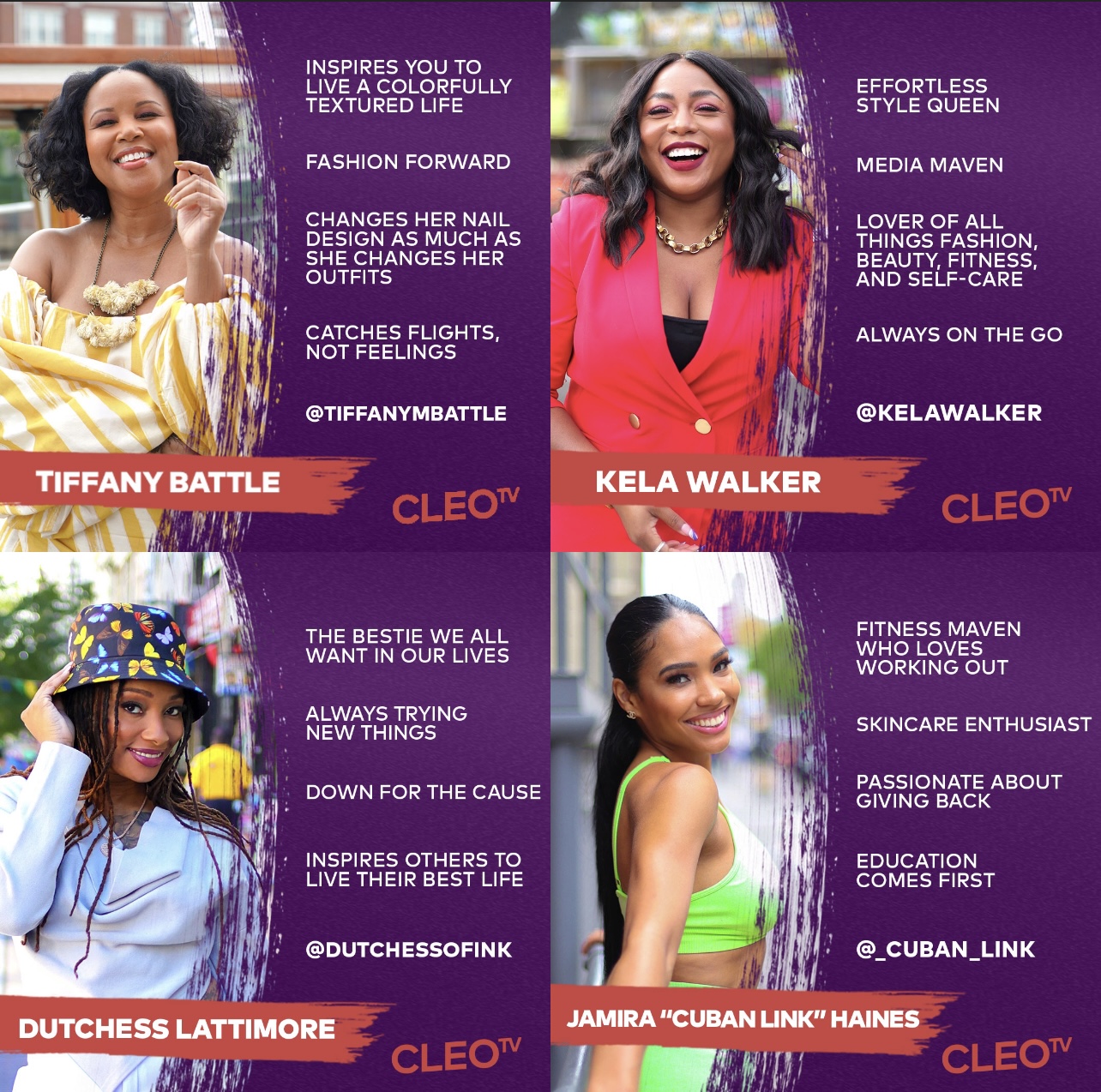
Source: Courtesy of Cleo TV / CLEO TV
CLEO TV hosted a Cocktails & Conversations: Bosses Don’t Code Switch event in Los Angeles, honoring the founders of Black on the Block which hosts a monthly event featuring all Black-owned businesses.
The event featured conversations on the value of authenticity in business and advocacy and the role digital platforms play in achieving success. During a panel discussion with Women of Color Girl Bosses, they discussed how being a boss is at the intersection of authenticity, advocacy, entrepreneurship, and technology. From driving legislation like the Crown Act to leveraging your digital platforms or digital presences, the panel of Boss Girls shared their personal guide to success.
MADAMENOIRE sat down and interview some of the Boss Girl panelists.
“Boss Girl’s Guide” is a hot new magazine-format show on Cleo TV that highlights how today’s women of color are living their best lives!
BGG showcases today’s hottest influencers in beauty, fashion, fitness, design, culinary, decorating, travel, home improvement, finance, parenting, and lifestyle on a fun, fast, informative show. One of the hosts is digital creator Tiffany Battle.
A lot of times when in certain professional settings we as Black people tend to code switch our voice because we have been conditioned or taught that we should sound a certain way to sound more professional or to make our white peers more comfortable. But who made the rules of what sounds professional or that we have to “sound white” when we are around our white peers? It’s been instilled into us so much as Black people that when we are talking to white people we automatically turn this code switch on so naturally that we don’t even notice.
MN wanted to talk to Battle to discuss her thoughts when it comes to code switching and to ask her if she feels like she has to code switch in certain settings and around her white peers.
“I no longer code switch as often. I have caught myself doing it when working with certain brand partners.”
She also shared that a brand contacted her to do a voice over which she code switched during her recording. The brand expressed that they wanted her to redo the recording because they wanted the authentic Tiffany Battle.
“That was my check in point when I realized they hired me for me. Even though I think it’s cute to sound professional, that was my reminder to show up as yourself.” Battle continued, “I think we both know who made the rules, but the question is why do we keep subscribing to it. I think it’s because for so long we wanted to be accepted. So now I think I’m this landscape. You can be accepted for being who you are and we now have so many examples of that. So people are becoming more and more comfortable showing up as their full selves”.
We also spoke with comedian, actress and social media star Lala Milan:
“People that code switch have a desire to be accepted by everybody in the room. I hate to say it but it’s deep rooted classism,” Milan said.
“We were taught [to] make sure you talk proper so you can get the job. It was embedded in us from years and years of being taught that. So if you really want to talk about it, racism, lowkey. Today we see so many people being unapologetically themselves and being accepted for it. Shout out to social media, we are seeing you no longer have to code switch. I feel like it’s still a thing in corporate America but I could possibly see that going away soon.”
Milan also shared that she doesn’t code switch at all and she is thankful that she was able to be successful for who she is, but she has always been articulate.
RELATED CONTENT: Denise Hamilton, Founder and CEO of WatchHerWork Talks Black Women Bossing Up and Stepping Into Their Giftedness


0 Commentaires